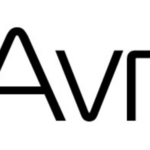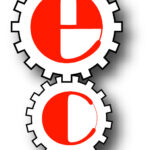What are Private Label Appliances?
Private label appliances are household and electronic devices produced by one company but marketed and sold under another company’s brand name. In this situation, the brand or retailer works together with a third-party manufacturer, which helps them avoid the need for manufacturing facilities. These appliances are designed to meet the brand’s specifications and needs, providing consumers with an exclusive product under a familiar, trustworthy label. This strategy allows retailers to offer a distinct appliance range without significant manufacturing investments, emphasizing branding, marketing, and customer experience as the priority. Common in consumer electronics and home appliances, private label appliances offer businesses the chance to provide tailored products to their target market.
What is the market size of the appliance market?
As per GrandViewResearch, The U.S. household appliances market was valued at $58.33 billion in 2023, projected to grow to $93.04 billion by 2030, with a CAGR of 6.7%. The global home appliances market is expected to reach $537.28 billion in 2024, growing to $664.53 billion by 2029, with a CAGR of 4.34%. Specifically for the U.S. small household appliances market, it was valued at $27.17 billion in 2023, projected to reach $38.01 billion by 2029, with a CAGR of 5.87%. While the search results do not provide a specific estimate for the appliance segment within the broader contract manufacturing market, they offer comprehensive insights into the size of major and small household appliance categories in both the U.S. and global markets.
How to Find The Best Contract and Private Label Appliance Brands?
Finding the best contract and private label appliance brands requires a strategic and thoughtful approach. You can start with thorough research to identify reputable manufacturers known for delivering high-quality products through industry forums, trade shows, and online directories. These avenues offer valuable insights into manufacturers’ reputations. Seek recommendations from industry professionals and conduct supplier audits to validate their reliability. Assess a manufacturer’s capacity to meet specific product requirements and adhere to quality industry standards. Clear communication and a collaborative partnership approach are crucial for alignment on design, specifications, and production processes. Laying out clear guidelines for communication from the start will establish a positive business relationship. Additionally, reviewing past collaborations and customer feedback provides valuable perspectives on a brand’s performance. Ultimately, the best brands align with a company’s values, product vision, and quality standards.
Benefits of Contract and Private Label Appliances Manufacturing
Contract and private label appliance manufacturing provide significant advantages for manufacturers and retailers. In contract manufacturing, companies benefit by saving on costs as well as having increased flexibility by outsourcing production, reducing operational expenses, and focusing on core competencies. This allows for quicker time-to-market, supporting goals of innovation, and quick adaptability to market demands. Private label manufacturing enables retailers to establish a unique brand identity without extensive research and development costs. Retailers can customize products to meet consumer preferences, enhancing brand loyalty and differentiation in a competitive market, often resulting in higher profit margins. Overall, both manufacturing models contribute to increased efficiency, innovation, and profitability in the consumer goods industry.






